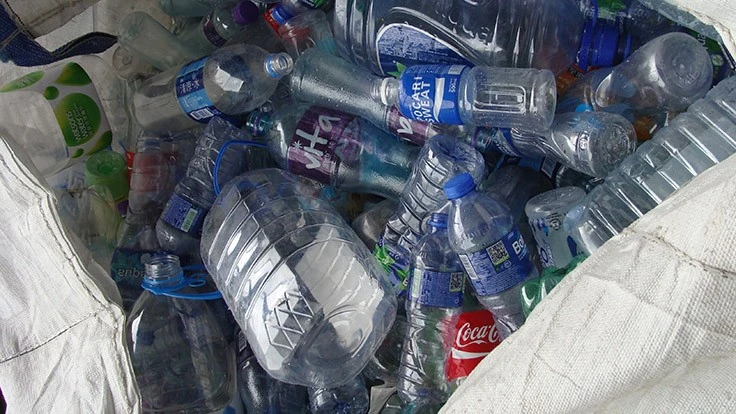
Nestlé and Veolia Environnement, two Europe-based companies with global presences, have announced an agreement to collaborate on recycling and waste collection and sorting with an emphasis on plastics and flexible plastic packaging. The two firms say they have identified projects that “will focus on 11 priority countries across Asia, Africa, Latin America and Europe.”
The partnership will also explore technologies to establish viable models of recycling in different countries. This includes chemical recycling technologies like pyrolysis, which the companies say is capable of producing virgin quality plastic from scrap materials. “These technologies will help Nestlé to increase the recycled content of its bottled water packaging to 35 percent and its overall product packaging to 15 percent by 2025,” the two firms state in a joint news release.
“Plastic waste is a challenge that requires an ecosystem of solutions all working simultaneously,” comments Magdi Batato, executive vice president and head of operations of Switzerland-based Nestlé. “This partnership is another specific step to accelerate our efforts in addressing the critical issue of plastic waste. Leveraging on Veolia’s technology and expertise, we will start with pilot projects in multiple countries, with the intention of scaling these up globally.”
Remarks Laurent Auguste, senior executive vice president for development, innovation and markets at France-based Veolia, “I am very pleased and welcome the opportunity of this partnership with a global [food and beverage] leader like Nestlé, in the quest for a more circular economy of plastics. Our expertise in resource recovery and recycling has positioned us to tackle this issue with global brands and other value-chain actors, across all continents. We believe it is time to move towards more recycling of materials and we are happy to help our clients be ever more inventive so they can keep improving our quality of life, whilst protecting our planet and its resources.”
The partnership is in line with a commitment by Nestlé to make 100 percent of its packaging recyclable or reusable by 2025, according to the two firms.
Garnier makes commitment

France-based Garnier pledged to continue to introduce measures to reduce plastic usage by committing to 100 percent postconsumer recycled (PCR) waste for shampoo, conditioner and leave-in conditioner bottles in its Fructis Sleek & Shine hair care collection by the end of 2019. According to a news release from Garnier, the company’s Fructis hair care products are produced in a zero-waste facility and the current packaging contains 50 percent postconsumer recycled waste. Also, the Garnier Fructis Sleek & Shine formula uses sustainably sourced Argan Oil from Southwest Morocco.
To promote the brand’s new commitment to PCR waste, the company plans to host an education-based mobile Greenhouse Tour in select retail locations across the U.S. from March to April 2019.
“Garnier's mission is to develop beauty products that are both good for you and good for the planet,” says Anncy Rowe, senior vice president of marketing for Garnier. “The announcement of our new signature, 100 percent PCR initiative for Fructis Sleek & Shine and the Greenhouse Tour serves as a commitment to our customers that we continue to aspire to bring the highest quality, most efficacious naturally inspired formulas in the most sustainable quality packaging to the masses at a price point that's attainable.”
According to a Garnier news release, the company has been working with TerraCycle since 2011 to educate people on how to recycle responsibly. Garnier reports that since the partnership started, the brand has diverted more than 11.7 million empty bottles from landfill. Those bottles have been upcycled into materials such as raised garden beds, benches and picnic tables.
Latest from Recycling Today
- BMW Group, Encory launch 'direct recycling’ of batteries
- Loom Carbon, RTI International partner to scale textile recycling technology
- Goodwill Industries of West Michigan, American Glass Mosaics partner to divert glass from landfill
- CARI forms federal advocacy partnership
- Monthly packaging papers shipments down in November
- STEEL Act aims to enhance trade enforcement to prevent dumping of steel in the US
- San Francisco schools introduce compostable lunch trays
- Aduro graduates from Shell GameChanger program





